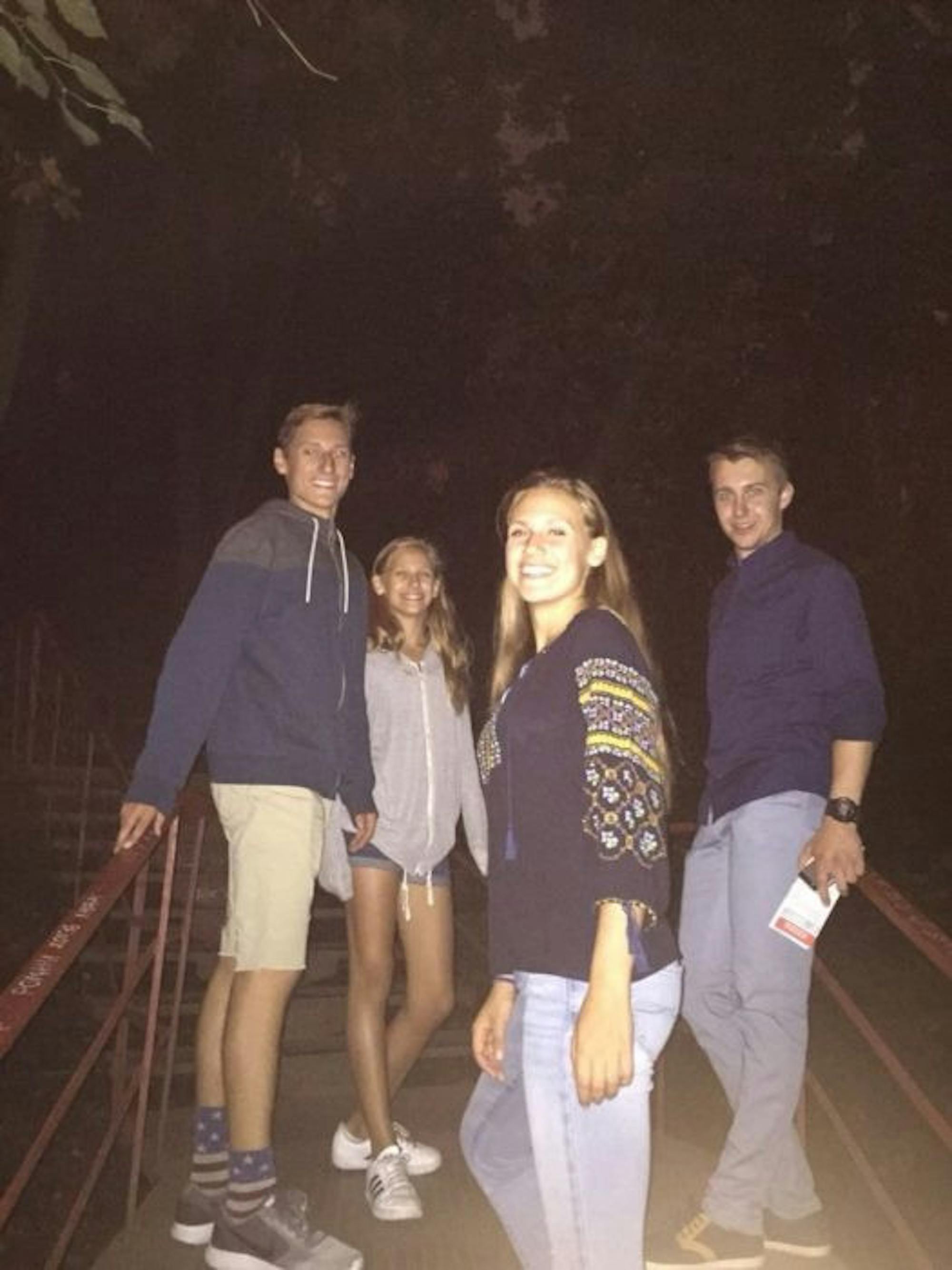“There’s no more days of the week. It’s just days of the war,” junior and president of the Notre Dame Ukrainian Society Maryna Chuma said.
After Russia’s invasion of Ukraine six days ago, several Notre Dame students with Ukrainian ties are struggling to deal with the attack on the country.
First-year Marko Gural said his parents fled Ukraine in the 1990s at the beginning of the tension between Russia and Ukraine. Gural explained that the conflict goes back to the founding of Ukraine after the fall of the USSR.
“Putin, in 2006, said that the greatest geopolitical disaster of the 20th century was the breakup of the USSR. So, many people have speculated that his aim is to recreate the Soviet Union,” he said. “[Putin has] talked a lot about how Ukrainians and Russians are essentially the same people. He’s denied the existence of [the] Ukrainian state.”
Also due to a personal connection, Chuma’s thoughts have rested solely in her fellow Ukrainians since the beginning of the invasion. She said she follows the news constantly and randomly bursts into tears.
“My study break is the news,” she said.
Maryna and her brother, Max Chuma, were born and raised in a Ukrainian community within the United States. She said they spoke Ukrainian at home as their first language, participated in the Plast National Scout Organization of Ukraine and regularly attended Ukrainian Saturday school, which teaches children about the heritage and traditions of the country.
Maryna Chuma said her pride in her Ukrainian identity is not isolated.
“It’s intrinsic to being Ukrainian to care about your nationality. The first line of our national anthem translates to ‘Ukraine has not died yet,’” she said. “We’ve been fighting for our sovereignty and successfully achieving it for centuries upon centuries.”
Max Chuma, a senior in the Mendoza College of Business and the vice president of the Notre Dame Ukrainian Society, said he attended Ukrainian summer camp every year during his childhood. It was there that he met other Ukrainians from around the world — some of whom are still currently in Ukraine during the invasion.
Maryna and Max Chuma have family in Ukraine. Their cousin, Roman Lozynskyi, is currently sheltering in the capital city of Kyiv. They said Lozynskyi works for the Ukrainian government and is hidden in Kyiv’s capital building with a machine gun issued to him in order to defend himself, should the need arise.
“One cousin, who I follow very closely on social media right now, is a deputy in the Ukrainian parliament,” Max Chuma said. “He’s in the capital right now with his state-issued gun prepared to defend his life.”
Also affected by the invasion is sophomore Anastasia Matuszak, who was born in Ukraine and lived there until she moved to the United States at the age of seven.
Matuszak said she heard news of the invasion first via Instagram posts from her Ukrainian friends.
“Even before all the news came out ... I was getting stuff on Instagram from my friends in Ukraine,” she said. “I kept refreshing to try to find official news about what was happening because everything was going on so fast.”
She said she immediately texted her two uncles and grandmother in Ukraine asking how they were doing. Even though they are currently safe, Matuszak explained that the war is a constant worry for them.
Since the invasion first began, Matuszak said she has tried to be active on social media and spread the word to her followers about the current state of events and what people can do to help Ukraine.
To help the situation, Gural and another member of the Ukrainian Society started a fundraiser to raise money for Ukrainian refugees. Gural said they have raised close to $3,000, with the donations going straight to Catholic Relief Services’ relief efforts in Ukraine. He stressed the importance of ensuring donations go to a reputable organization that uses the money correctly.
Maryna Chuma said she is overwhelmed by the amount of support the Notre Dame student body and University administration has shown for Ukraine. The most important ways to continue to lend aid to Ukrainians, she said, are staying educated about the situation, donating, praying and advocating for peaceful outcomes.
She said she is confident in the resiliency of the Ukrainian people within the country and beyond.
“Ukraine is going to survive this,” she said. “We’ve done it multiple times in the past. It’s in our blood to survive this.”
‘It’s no longer a crisis, it’s a war’: Students share personal connections to Russia-Ukraine conflict
Courtesy of Max Chuma
Max Chuma (far left) and Maryna Chuma (front) with their sister, Mia, in their family’s home village of Lviv. Also pictured is their cousin, Roman Lozynskyi (right), who works for the Ukrainian government and is currently sheltering in Kyiv.









